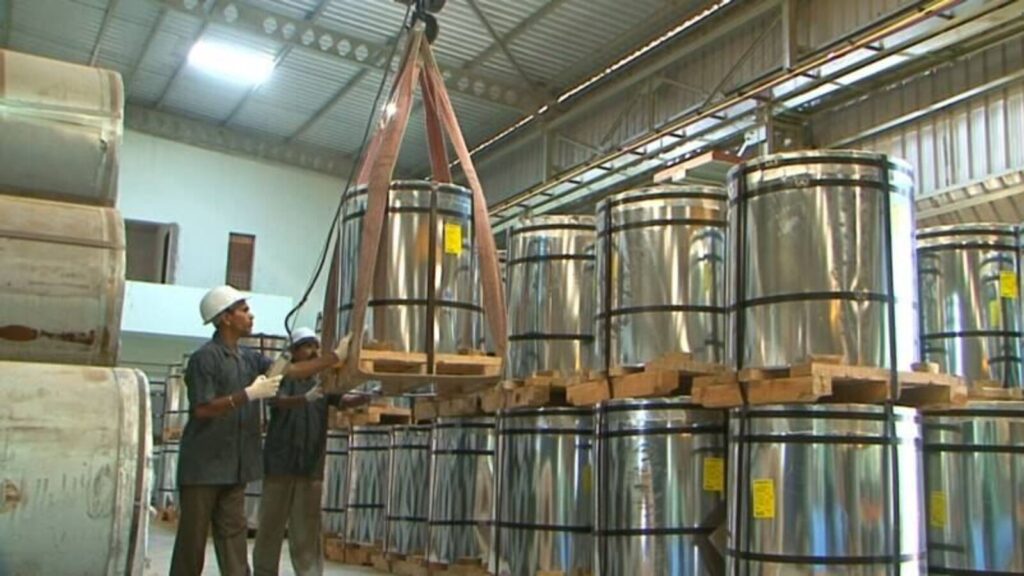One clear indicator of this is that the net value of the marketwide options’ open position plunged from ₹4.96 trillion on 7 May to ₹91,149 crore on 24 May, a day ahead of the sixth phase of the election. The last phase of voting will be held on 1 June, and the election results declared on 4 June.
The value of the marketwide open position is calculated by deducting the value of the index and stock put options from the value of the index and stock call options.
The steep decline in the marketwide open position value indicates that investors selling call options, or bears, have been forced to cover their short positions—essentially punts against an unfavourable electoral outcome.
The short covering was behind the benchmark Nifty’s rally from 22,302.50 points on 7 May to 22,957.10 on 24 May. On Monday, 27 May, the Nifty ended nearly unchanged at 22,932.45 points.
Also read | Why the national election is making the stock market swing wildly
“Markets are anticipating political continuity, emphasised by the short covering seen so far,” said B. Gopkumar, managing director and chief executive of Axis Mutual Fund. “The only thing to be seen is the margin of victory on 4 June.”
A healthy turnout
Indications are that more shorts or bears will be squeezed out by 1 June, say analysts anticipating a victory for the incumbent Bharatiya Janata Party-led National Democratic Alliance.
They caution, however, that the market reaction on 4 June, the day of the official counting of votes, will depend on the margin of victory for the BJP.
The market had baked in a sweeping victory for the NDA before polling began on 19 April, but turned nervous amid low voter turnout in the early phases of the election.
The Election Commission, however, estimates that 66.39% of India’s 764 million electors cast their votes during the five phases of the election, which market bulls believe is a healthy turnout, said the CEO of another fund house, requesting anonymity.
Also read | There’s a reason why the Indian stock market seems to love the BJP
“That is the reason we have seen the market recover from the lows earlier this month, as the voter turnout figures for the five phases showed an inline trend with that of 2019,” this CEO said. “That is giving confidence to the Street about political and economic continuity.”
While the BJP has claimed that it along with its allies would win in at least 400 of the 543 Lok Sabha seats (not counting the two seats reserved for the Anglo Indian community), the market consensus now is for 300-330 seats, he added.
Profit-booking either way
A person selling a call option is a bear as they expect the market to not rise above the index or stock level they sold at plus the premium received from the call buyer, which would enable them to pocket the price paid by the call buyer.
As cash buying by domestic institutions increased in May, investors with short positions scurried for cover, according to Rohit Srivastava, founder of market analytics firm IndiaCharts, adding that this indicated an increase in confidence of a BJP victory.
However, like Gopkumar, he too said the Nifty’s reaction on 4 June would depend on the margin of the BJP’s victory.
“Fewer than the 2019 figure of 303 seats for the BJP will result in profit-booking, while a larger count could also see profit-booking after a euphoric rally the next day,” said Srivastava.
Also read | Why stock markets are jittery and what could happen next
For context on the recent short covering, the 22,500 Nifty call expiring on 30 May saw its price rise from ₹245 per share (25 shares make one contract) on 7 May to ₹543.85 a share on 24 May, as trader open positions fell from about 2.6 million shares to about 2.4 million shares.
Alok Churiwala, MD of brokerage Churiwala Securities Pvt. Ltd, believes the round of short-covering underway could continue through the day of the election results, but the margin of victory would determine the market reaction.
“330 or above seats for the BJP will lead to euphoria,” he said, “but 300 or fewer will not impress the markets, which could see a sharp spell of profit-booking.”

